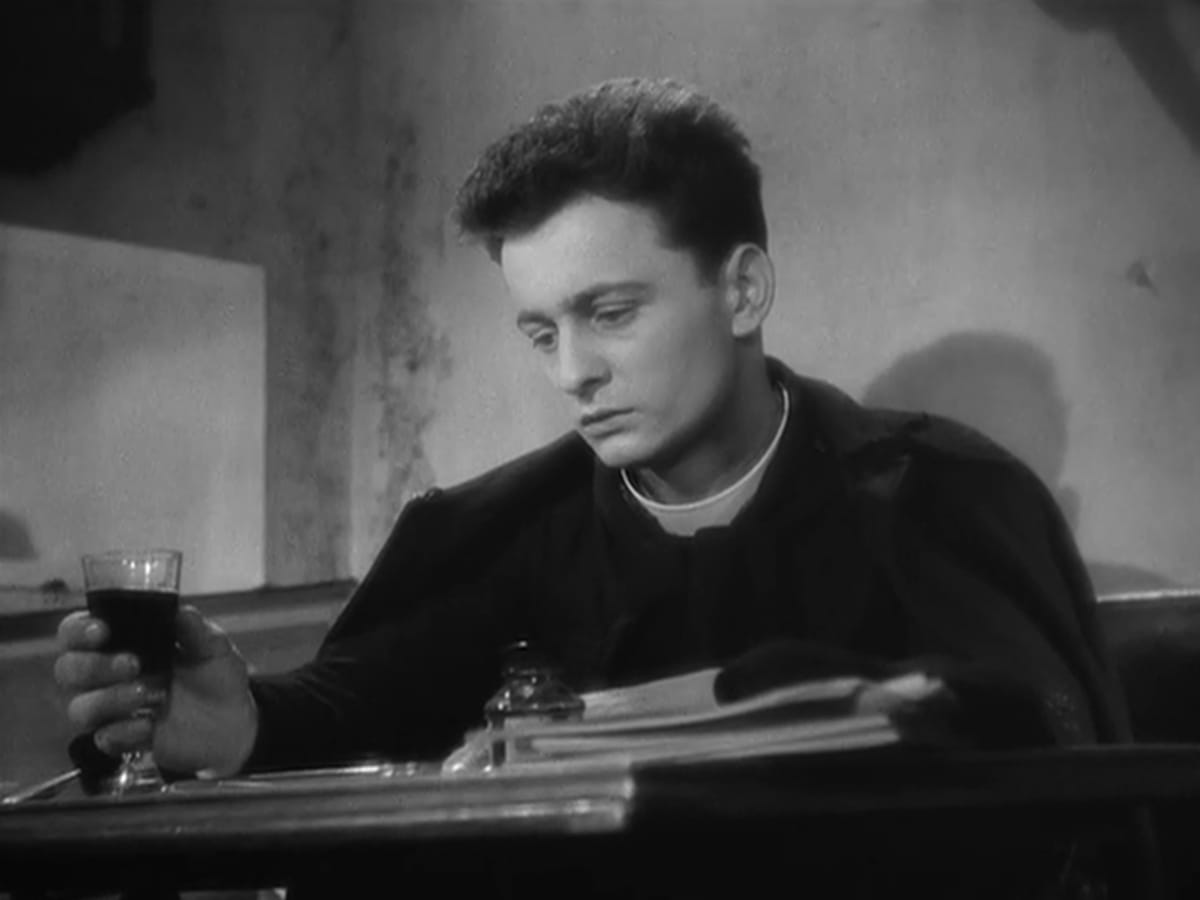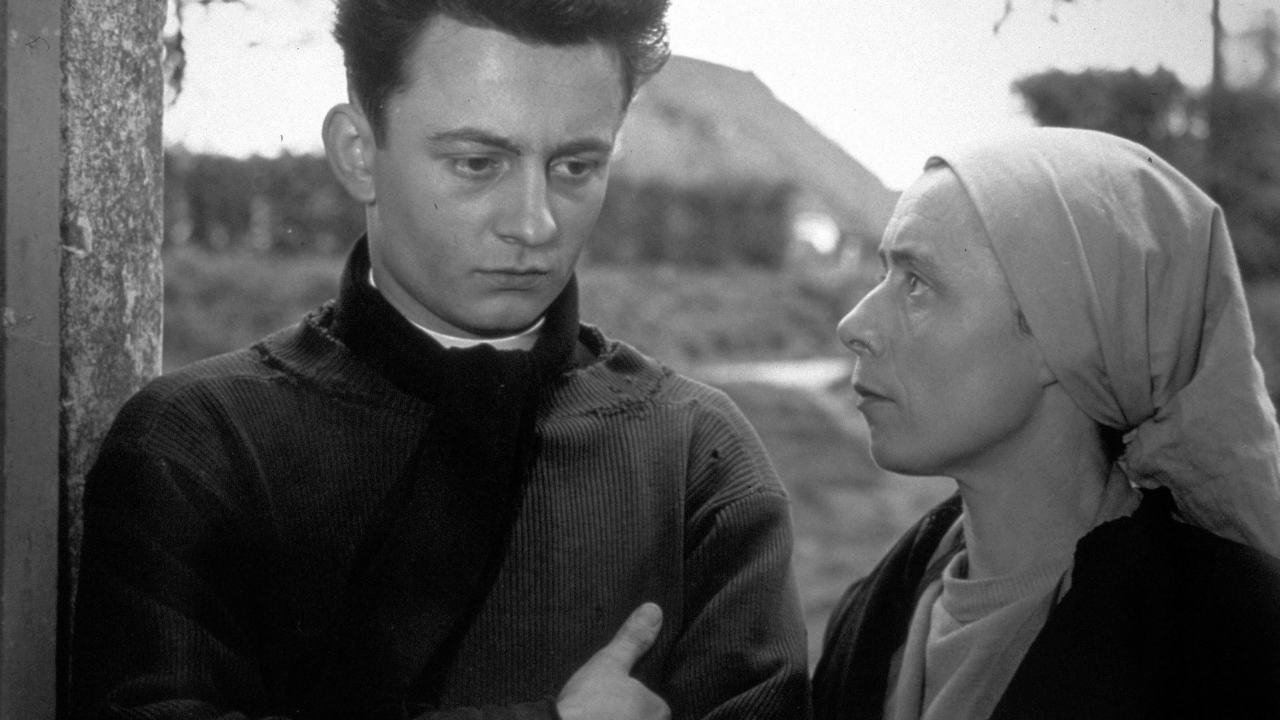Diary of a Country Priest

A new priest (Claude Laydu) arrives in the French country village of Ambricourt to attend to his first parish. The apathetic and hostile rural congregation rejects him immediately. Through his diary entries, the suffering young man relays a crisis of faith that threatens to drive him away from the village and from God. With his fourth film, Robert Bresson began to implement his stylistic philosophy as a filmmaker, stripping away all inessential elements from his compositions, the dialogue and the music, exacting a purity of image and sound.
SPECIAL EDITION FEATURES
- Audio commentary featuring film historian Peter Cowie
- PLUS: An essay by film critic Frédéric Bonnaud
Cover by Michael Boland
SPECIAL EDITION FEATURES
- Audio commentary featuring film historian Peter Cowie
- PLUS: An essay by film critic Frédéric Bonnaud
Cover by Michael Boland

Cast
- Claude Laydu
- Priest of Ambricourt
- Jean Riveyre
- Count
- Marie-Monique Arkell
- Countess
- André Guibert
- Priest of Torcy
- Antoine Balpêtré
- Dr. Delbende
- Nicole Ladmiral
- Chantal
- Martine Lemaire
- Séraphita
- Nicole Maurey
- Louise
- Jean Danet
- Olivier
- Gaston Séverin
- Canon
- Bernard Hubrenne
- Priest Dufréty
- Jeanne Étiévant
- Housekeeper
- Gilberte Terbois
- Madame Dumouchel
- Léon Arvel
- Monsieur Fabragars
- Martial Morange
- Deputy mayor
Credits
- Director
- Robert Bresson
- Producers
- Léon Carré
- Producers
- Robert Sussfeld
- Screenplay
- Robert Bresson
- Based on the novel by
- Georges Bernanos
- Original music by
- Jean-Jacques Grünenwald
- Cinematography
- Léonce-Henri Burel
- Film editor
- Paulette Robert
- Art director
- Pierre Charbonnier
- Set decorator
- Robert Turlure
- Assistant director
- Guy Lefranc
- Sound
- Jean Rieul















